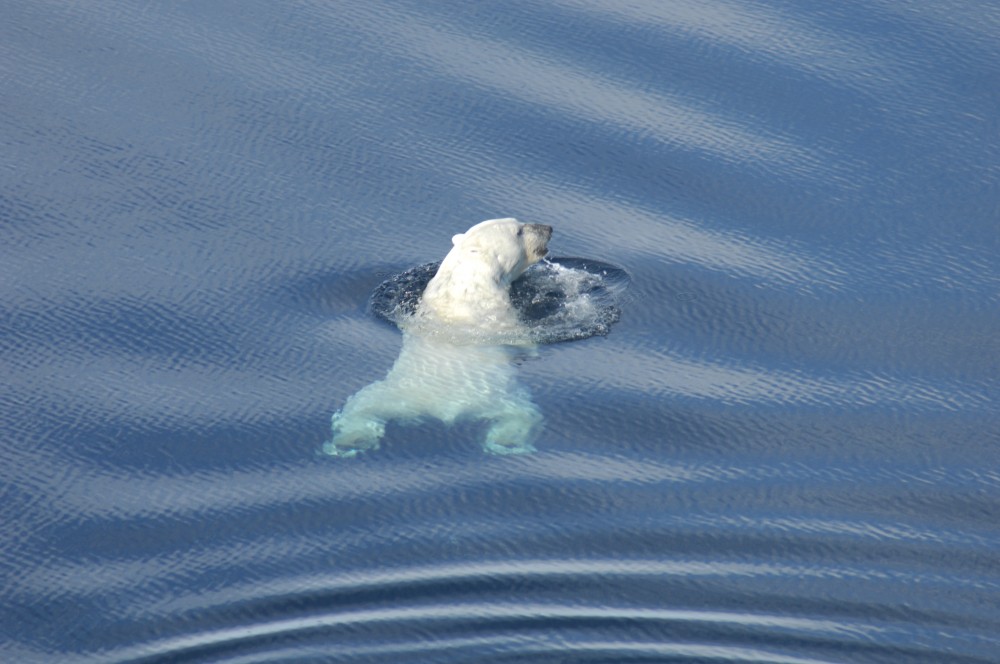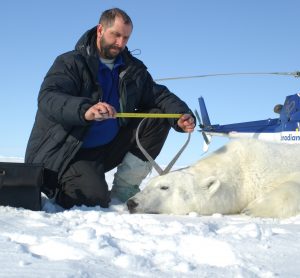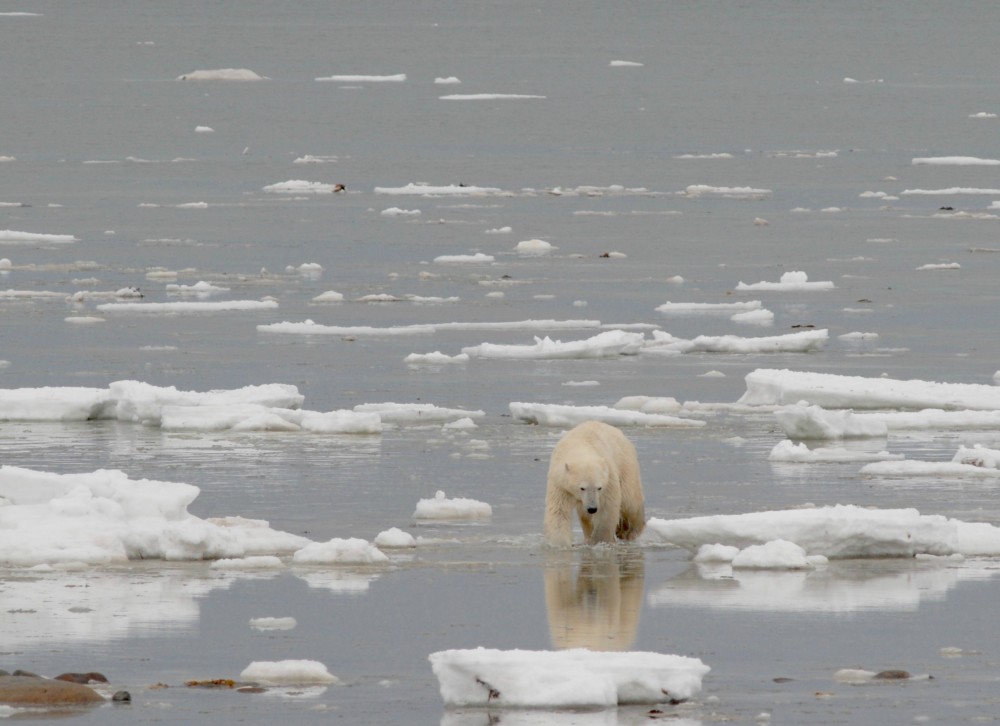Polar bears forced to swim long distances as Arctic ice melts

Scientists are sounding the alarm over the discovery that many polar bears in the Canadian Arctic are making marathon swims of several days in search of stable ice as the Beaufort Sea melts with climate change.
Between 2007 and 2012, Canadian researchers tracked 58 adult female polar bears and 18 young bears of both genders in the Beaufort Sea and 59 adult females in the Hudson Bay region. (Adult males weren’t tracked because they often remove their collars and their necks are typically too wide to keep their collars on.)
“This is an area that has undergone very rapid sea ice change and if you go back just about three decades, in the summer you could see the ice from shore if you stood on the coast of Alaska or Yukon Territory,” said Prof Andrew Derocher, professor in the Department of Biological Sciences at the University of Alberta and co-author of a new study on polar bears.

The new study is called “Migratory response of polar bears to sea ice loss: to swim or not to swim” and it has just been published in the peer-reviewed journal Ecography.
Derocher, has been studying polar bears for more than three decades. He says they are great swimmers, but prefer not to.
He notes that because the ice is shrinking the bears are now more often making swims of up to 50 kilometres and more to reach ice, or come back to land. In fact, one bear swam more than 400 km almost non-stop over nine days.
The bears in Hudson Bay and the Beaufort Sea in the Arctic were tracked using satellite-linked telemetry.
The study shows that a high percentage (69%) of tracked adult female bears in the Beaufort Sea area made at least one swim of 50 km or more. The bears in the Hudson Bay were not making as many long distance swims as the ice conditions were not as variable as in the Beaufort Sea.
“When I started studying polar bears in 1984, sea ice in the Beaufort Sea was visible from shore year round,” says Derocher. “In recent years, the ice has retreated several hundred kilometres offshore by September and it’s a much more challenging habitat for the bears to live in.”

Any of these long swims require a great deal of energy, and for young and old bears, or if undernourished or weak, it can prove to be a fatal expenditure of energy.
“While polar bears as a species are eminently suited to swimming, not all bears are equally able to swim long distances,” explains Derocher. “The youngest, oldest, and skinniest bears are much more vulnerable to drowning. With more open water, we can expect increased mortality associated with more long distance swimming.”
Derocher says it’s possible the need to make these long swims could be having an effect on some of the Arctic’s 19 bear populations, if young bears are perishing on such trips, this would affect the population being replenished.
Related stories from around the North:
Canada: Study shows polar bears relocating to icier Canadian Archipelago, Alaska Dispatch News
Finland: Finland’s bears are on the move, Yle News
Russia: Russian oil company studies polar bears, Barents Observer
Sweden: Petition to restrict brown bears in North Sweden, Radio Sweden
United States: Small grizzlies dominate bigger polar bears: study, Alaska Dispatch News



